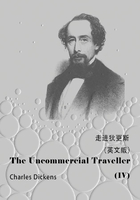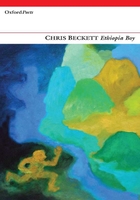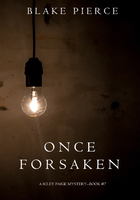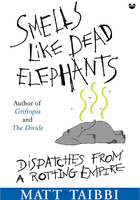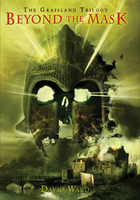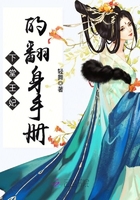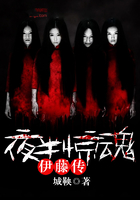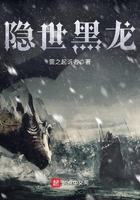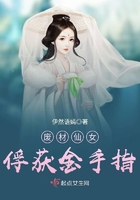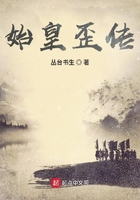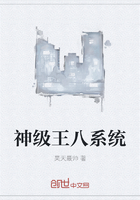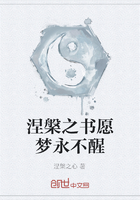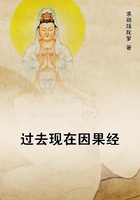"POISON ARROW"
In 1979, Sheffield was the home of Britain's steel industry. It was also the birthplace of oppressive experimental underground acts like Cabaret Voltaire, Clock DVA, and the early, avant-garde, all-male Human League. Martin Fry, a worker in a baked beans factory by day and fanzine writer by night, went to interview another Sheffield industrial group, Vice Versa, and ended up joining their ranks. Dissatisfied with the music they were making, Fry and new bandmates Mark White and Steve Singleton changed the name of their group to ABC and made it their mission to write songs as slick and polished as their previous output had been clanging and thudding. They were not alone in their ambitions: The streets of the U.K. bustled with bands more than happy to trade their indie credibility for glossy productions and chart success (see Scritti Politti, the Associates, Thompson Twins). But with their first international hit, "Poison Arrow," and their debut album, The Lexicon of Love, ABC left their contemporaries twisting in the wind. Lexicon was a rich, overstuffed chocolate box of a record. Fry's extravagant wordplay was perfectly complemented by Trevor Horn's opulent, everything-plus-the-kitchen-sink production and his regular arranger Anne Dudley's lush orchestration. The Lexicon of Love was the sound of a band reaching out to achieve their ambitions, and surpassing them. Expecting them to ever best such a spectacular debut would have been asking the impossible, but at the height of their powers, ABC appeared so unassailable that asking the impossible seemed appropriate.
JB: I had ABC's number. Without hearing a note, I knew what they were: another new group who had put in hours practicing moody looks for their glossy spread in the Face. Another new group with a loquacious egomaniac frontman who had put in hours practicing self-aggrandizing quotes for his feature in the NME. Another new group who specialized in the sort of arthritic British funk that had reached pandemic status since Spandau Ballet drew up the blueprint with "Chant No. 1." ABC's first single, "Tears Are Not Enough," did little to alter my sullen adolescent prejudices. Singer Martin Fry proved, as predicted, considerably more accomplished at posing for artfully constructed photographs and hailing his band's greatness in the pop press than he was convincing as the soulful singer of a band who claimed global success as a birthright. Then they released "Poison Arrow." Everything, you, as a young person, might hope you're going to get in a pop record is right there. Emotion, ambition, humor, drama. A point of view. A sense of the ridiculous. A call-and-response bridge. Even a talky bit in the middle. The Julien Temple–directed music video was every bit the record's melodramatic equal, with a lovelorn Fry tormented and cheerfully abused by luscious femme fatale (and future Real Housewife of Beverly Hills) Lisa Vanderpump. I have gone on to be completely wrong about many other groups—and, indeed, many other aspects of life, in general—but initially dismissing ABC was the most rewarding mistake I ever made.
LM: Not sure if you realize it, JB, but The Lexicon of Love is the reason we became friends. When you told me it was your favorite album of all time—back in the early nineties, when we were the only people who'd admit to liking new wave while working at a grunge-obsessed Spin magazine—I thought: Now, here's a guy I can hang with. While I love Spandau and Culture Club, neither ever released a flawless long-player like Lexicon. The talky bits were my favorite parts, like in "The Look of Love," when Fry says to himself, "Martin, maybe one day you'll find true love." He always came across as such a hopeless romantic—it was the beautifully tailored suits, the way he referenced Cupid and Smokey Robinson in his songs, how he pined for a more chivalrous era. For an eighties teenager experiencing the thrill (and then heartache) of her first crush, ABC offered a vision of love that I could only hope the real thing would live up to.
MARTIN FRY: Decades don't always begin at zero. They begin a couple of years in, the mood and style. A couple of years into the eighties, when I was forming ABC, I realized no one could be more Sex Pistol–y than the Sex Pistols or more Clash than the Clash. I loved punk, but it never seemed to go as far as it could have. Maybe Simon Le Bon and Nick Rhodes or Tony Hadley and Gary Kemp might say something different, but for me and for a lot of my generation, it was really frustrating the Clash were never on Top of the Pops. I wasn't going to try and be a proto-punk. I wanted to do the opposite.
That's why I got so excited by disco, which was a really dirty word at the time. I wanted to make music that was funky and radical. The early ABC was the "Radical Dance Faction"—that's what we called ourselves. I'd also grown up loving Motown, Stax, and Atlantic, along with Roxy Music—Roxy performing "Virginia Plain" on Top of the Pops in 1972 was my road to Damascus. So it made natural sense to try and fuse those worlds. When I think back, looking at stuff like the Pop Group, James Chance and the Contortions, Pigbag, and all the bands that came through just before and just after ABC—Duran Duran, Spandau Ballet, Depeche Mode—there was a whole generation itching to make dance music, populist music. I don't think it was any accident that all those bands became internationally known.
I interviewed Vice Versa for my fanzine, Modern Drugs, in 1979. They were kind of a fledgling Human League, only younger and less revered. When I went to interview Steve Singleton and Mark White, they said, "We're going on a train from Sheffield to Middlesbrough to open up for Cowboys International. We've not got a drummer, but we've got lots of synths in our holdalls. You can stand onstage with us." We got bottled off by these skinheads who didn't get us. We were mohair sweaters and post-punk and ironic, but I loved it. After that, they let me join the band.
MIXTAPE: 5 More Melodramatic Songs About Heartbreak 1. "Say Hello, Wave Goodbye," Soft Cell 2. "Waves," Blancmange 3. "No More 'I Love You's,'" The Lover Speaks 4. "The Promise," When in Rome 5. "The Promise You Made," Cock Robin
Sheffield was full of experimental bands: Cabaret Voltaire, Human League splitting off into Heaven 17, Pulp were on that circuit, Comsat Angels. You felt really isolated in Sheffield. You didn't feel linked to the rest of the country. People didn't really go there for any reason. So the majority of the audiences you played to were musicians, guys in other bands. Those are the toughest people to play to. We once did a gig in the Heaven and Hell club in Birmingham. If you took out the 5 members of Duran Duran[1] who came to see the show, there'd be about 24 other people there. But Sheffield was entirely subsidized, so you could get on a bus for 10p and go anywhere in the city. It was a great place to be poverty stricken and function. That's why the band was able to change and develop.
Mike Pickering, who went on to be the DJ at the Ha?ienda, was working as a chef in Rotterdam and said he could get us some gigs there. So we went and slept on his floor. He had a shop and threw a party and let us jam. I started singing, and Mark White said I should be Vice Versa's singer. But then Mark White was dogmatic that we should drop everything, change the name, and become something else. It was destroy, disorder, disorientate—smash it all up. Vice Versa were being played on John Peel, they'd done an EP, they were going places, but we decided to destroy it. Virtually overnight, we hooked up with a drummer, bass player, sax, and keys. Looking back, it was really ambitious. We had a vision of how we wanted to be. We showed up onstage in Sheffield wearing cyclists' uniforms. People would show up expecting Vice Versa, and we were this new band, ABC: the Radical Dance Faction. Overnight, we wanted to be a funk band but with a sort of angular lyric. We wanted to be as polished as Chic and Earth, Wind & Fire, a band that was nurtured on Diamond Dogs and Kool and the Gang. We didn't really have the musicality, but that's not something you think about when you're coming through. That's why they call it blind ambition.
It was a frantic time, 1980, '81. We always felt like we wanted to get there first. The Human League were an incredible band, but we'd seen how Gary Numan and Orchestral Manoeuvres had almost eclipsed them by having chart hits. Spandau Ballet and A Certain Ratio terrified us. Stimulin, Funkapolitan, Haircut 100—you'd hear about these bands on the grapevine and through fanzines and the NME and Record Mirror. They were all unsigned. We were frantically writing songs and playing shows. We wanted to be a step ahead. It felt like we were running to a place we wanted to be. I look back, and it was like a mania. Everybody had their manifesto, and everybody had a big mouth back then. I used to do interviews and tell people we were going to conquer the world. It all boils down to wish fulfillment, making it a self-fulfilling prophecy. That's why Muhammad Ali did it: to try and psych himself up for the battle ahead. It was mildly irritating when Gary Kemp said Spandau Ballet were the best band in the world or when Simon Le Bon said the same thing about Duran Duran. But we all said it.
"Tears Are Not Enough," the first single we brought out as ABC, was great, but it was really angular. It was successful—it got into the Top 20—but we had greater ambitions. We were our own worst critics.
We spent the whole of the eighties being unsatisfied with everything we did. We wanted to make a record that was like "Good Times," and "Tears" wasn't as fluid, and it wasn't as funky. That's why we contacted Trevor Horn. He'd just done "Hand Held in Black and White" by Dollar, and it had this panoramic, wide-screen sound. That's what we wanted to sound like. We didn't want to be Dollar—they were cheesy. People said, "You had a Top 20 hit. That's an achievement. Why are you changing it around?" But we hadn't got to number one—that's how foolishly ambitious we were. That was definitely the spirit of the times. It wasn't really about any wealth that would follow from it. It was a competition. It was a game.
STYLE COUNCIL
"I really like Jerry Lewis in The Nutty Professor," Fry says. "He undergoes this transformation and becomes Buddy Love in the Purple Pit. I always thought that was very Lexicon of Love. I was this gawky, adolescent, invisible kind of guy, but in the gold lamé suit everybody was paying me attention."
"Everybody had their manifesto, and everybody had a big mouth back then. I used to tell people we were going to conquer the world."
Trevor got it straight away. He was amused by a lot of the stuff we were talking about, how we were going to take on the whole music industry and change it. He was really inspiring because he'd been a musician—he was a Buggle. He said, "If you make a record, it lasts forever, so you might as well make it as good as you possibly can."
Not to sound like Eminem, but you've got one shot. You've got to hit the bull's-eye. There is a big difference between "Tears Are Not Enough" and "Poison Arrow." The idea was to make "Poison Arrow" as un-rock 'n' roll as possible. It was a million miles away from the Pistols and the Clash. We didn't want to sound like anyone else. It was almost like a song from the 1940s but with bass parts from Chic and the drums… the idea was to have them as big as possible. They don't sound that big now, but at the time, it was operatic in the sense that it doesn't fade out; it builds to a climax. Lyrically, "Who broke my heart" is almost like a matinee idol singing. I'm looking at the sleeve—it's all tuxedos. In the middle of the song there's this bit where I go, "I thought I loved you, but it seems you don't care." And then Karen Clayton, the receptionist in [Trevor Horn's studio] Sarm East, she did the "I care enough to know I can never love you" part. It was an attempt to be like Clark Gable rather than Johnny Rotten.
As a singer, looking back, I was completely inexperienced. I'd done a few gigs but I wasn't developing. In "Poison Arrow," the idea of the vocal was to be histrionic. It wasn't just describing the emotions; it was reliving them. And it rhymed. This whole idea of making a song that rhymed was against the grain to a lot of the young bands that were writing songs back then.
"Poison Arrow" is a very emotional song, really. It's that feeling you get when somebody doesn't want to know you and you want to know them. It's that gut-wrenching kick in the teeth when someone walks away from you. That's the core of it, and I think that's why it's been successful over the years, because a lot of people have had that emotion. And another thing: "Poison Arrow" unlocked the door for the rest of the songs on The Lexicon of Love. The idea of writing something very emotional and not about toothpaste or electric pylons or the brutality of living in a high-rise block. Our songs were about heart and love and trying to make sense of that but, because we were very self-conscious, in an un-cheesy way.
I liked to write very bright, audacious, hyper-real love songs. But when I look back, I think I was hiding more than I was showing. Today's writers are very vulnerable and very specific about how they feel, but "Poison Arrow," "The Look of Love," "All of My Heart," they're kind of brash and larger than life. I wanted it to be art. I didn't mind the idea of being pretentious. What did Adam Ant say? "Ridicule is nothing to be scared of."
THAT WAS THEN
BUT THIS IS NOW
ABC made a classic eighties attempt to blow up the formula that made them successful by following The Lexicon of Love with 1983's austere, unglossy Beauty Stab, which was shunned by the mass record-buying audience who had previously embraced the group. (FYI: The title of this little recurring feature takes its name from Beauty Stab's famously alienating first single, "That Was Then But This Is Now.") Subsequently, they turned themselves into cartoon characters for the great How to Be a Zillionaire! (1985); countered the confusion caused by the previous two albums with Alphabet City (1987), a semi-successful attempt to rekindle the ABC that had won widespread acceptance; and tried their hands at a British house record that worked hard to sound jubilant and celebratory with Up (1989). It was their last album of original material to make any chart appearance.
FRY: In 1997 I started playing live again. I still play gigs with people like Belinda Carlisle and Heaven 17, and there's an element of competitiveness even now amongst the veterans doing their victory laps.
The audiences we're playing to, those songs meant a lot to them. That really illuminated things for me. Up to then, playing old hits was a millstone around my neck. I was like, "I want to leave the past behind, what's next?" But it was fantastic to stand in front of an audience and feel the reaction, to read an audience and learn some stagecraft again. You sense all of that when you're standing in the spotlight. I still take pleasure in singing "Who broke my heart—you did!" and pointing the finger, and all those fingers point back at me and sing along. Thirty years on.
Notes
[1] JOHN TAYLOR, Duran Duran: I remember that. They were amazing. That was before they made a record. I felt ABC were better than us. I mean, The Lexicon of Love is a perfect record, as is "Poison Arrow." But they couldn't keep it together—that was their problem. But when I saw ABC at Holy City, I thought, Holy fuck! They played so well. They were a great band.

